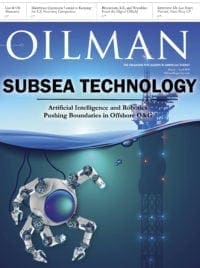Exploration Policy
An operating company has to compete with all oil and gas companies including national oil companies for oil and gas blocks, which are auctioned. The operative company submits bids based on the available technical data from the relevant regulatory body responsible for hydrocarbon resources and any of its technical arms. The operating company has to invest money with approval from the host government and explore the field for finding oil and gas. This involves several stages like exploration drilling, appraisal drilling and development drilling. Moving on to subsequent stages is dependent on the economic and technical feasibility of a project. Sometimes huge sums of money are invested to find a successful production well. The success of operations depends on a company’s asset management skills also.
Oil and Gas Fields (Exclusive)
In some host countries there are petroleum acts, petroleum rules and oilfield acts. Petroleum and natural gas rules are in place to monitor the legislative and statutory requirement of operating companies. Operators (companies which own the field in competitive bidding and engage in exploration and production of oil and natural gas) should strictly follow these acts and rules.
In cases when using foreign vessels, drilling rigs, barges, platforms, supply vessels, etc. for E&P activities, operators have to get security clearances from the concerned regulatory body of the host government (may be applicable to some countries).
Oil and gas operating companies should produce the oil and gas quantity committed to the host government, irrespective of reservoir complexity and uncertainty. All the committed production is to be taken out by the operating company with its risk investments, and the profits are to be shared with the host government. The price of selling and distributing oil and gas is also fixed by the host government only, irrespective of the supply and demand. Sometimes prices may vary because of global causes.
Transportation
In case of wells located away from the processing facilities, where well fluid is being transported to process facilities by pipelines, the operator has to follow the host country’s statutory approvals for design, construction, commissioning and the operation of pipelines. In addition, operators have to ensure the integrity of lines to prevent fluid leaks from the pipelines. Such things may come under water, land pollution acts and rules of the host country.
After field processing of crude oil and natural gas, crude oil can be transported through ships, pipelines or by road tankers. Similarly, natural gas can be transported by pipelines. In all cases, operators have to follow the transportation acts and rules of the host government. As these petroleum products come under inflammable products, motor vehicle rules and acts are to be complied with for vehicle license and transportation for road transport. During shipping and transportation, the entire path of travel, concerned country or international laws are to be followed. In the case of processed crude oil and natural gas transported by pipelines (if the operator has ownership/ responsibility for custody transfer), operators have to take the host country’s statutory approvals for design, construction, commissioning and operation of pipelines. In addition, operators have to ensure the integrity of lines to prevent leak of fluid from the pipe lines.
Operators have to ensure the integrity of all facilities, equipment, pipelines, piping integrity, should prevent external and internal corrosion, and should follow the concerned statutory acts and rules of the host country.
Work Program
Operators have to get approval from the technical arms of the concerned regulatory body of the host government for work programs and should follow the exploration policy of the host government. Operators have to submit the work program with complete details and time schedules to the technical arm of the concerned regulatory body, like exploration wells, appraisal wells, development wells, subsurface facilities, surface facilities details, expenditures incurred for the construction of facilities and commencing the production. Operators have to start and complete as per the approval only and should submit all the reports to the technical arm of concerned regulatory body of the host government.
Inspection
Operators have to get approval/permission from factory inspectors and boiler inspectors for some operating facilities. Pressure vessels, boilers, high pressure systems, pipelines, safety devices, cylinders etc., may fall into this statutory requirement. Operators have to follow the inspection schedule mentioned and should submit records as per the procedure during the audit. In oil and gas production, most of the equipment is in critical service and falls into the scope of this statutory body of the host government. This statutory body representative may visit the facilities and may witness the inspection also.
Mines Act
Some operator operations may come under a mines act, depending on the location of facilities and the host government policy. Operators have to fulfil all the statutory requirements of the mines acts of the host government. Operators have to comply with the statutory requirement and should ensure their operations are safe as per the act and rules of statutory body.
Explosive License
Some facilities like hydrocarbon storage may require explosive licenses from the statutory body of the host government. Storage of diesel, flammable gases, hydrocarbon storage tanks, compressed gases storage etc., may fall into this category. Operators have to take licenses initially and should follow the guidelines for inspection regularly.
Weights and Measures
Operators have to certify flow meters from the weights and measures statutory body of the host government to export the quantity accurately.
Electrical Installations
Electrical installations are to be certified by the concerned statutory body of the host government. Operators have to get licenses.
Finance
Oil and gas reserves are considered national resources; the owning country has all rights on its reserves. The oil and gas exploration business is not like other businesses, where the company has a hold on getting raw materials and fixing prices of its produced products. The operating company should get approval from the oil and gas regulatory body’s technical arm for all investments and what operators are spending on oil and gas exploration, because only approved expenditures can be recovered from the sale of oil and gas.
Operators have to follow the foreign investment policy of the host government, in case the operator is not from the host country. Operators have to follow the finance statutory guidelines related to royalty, income tax, services charges, custom duty, VAT, excise, etc. All of these documents are to be produced to the concerned party as and when required. Operators have to maintain accounts and should get approval from the concerned statutory body of the host government related to the cost of recovery from production sales for investments put up by operators. Operators have to sell the crude oil, condensate and natural gas as per the pricing policy of the host country only, irrespective of demand.
Safety
Some safety statutes related to operator facilities are covered. There are some statutory compliances related to working personnel and safe operations. Operators have to fulfil all of these compliances. Safety interlocks, safety alarms, work permits, third party safety audits, engineering safety controls, personal protection systems, mandatory trainings, etc., may fall in this category. Similarly, operators have to establish emergency and disaster management systems, and should work to create awareness among working personnel and neighbouring residents. Operators have to tie-up with local regional administration, in case of escalation of incident to uncontrollable level.
Human Resources
Operators have to follow all the labor laws of the host country. These laws cover the employment, minimum wages, provident fund, professional tax, workmen’s compensation, etc. Operators have to ensure whether outsourced companies in their operations are following these laws. Sometimes, some services are to be given by expatriates. In such a case, operators should follow concerned statutory procedures and policies for using their services.
IT & Communications
Operators have to get the licenses for radio communications, microwave communications, wireless communications and telecommunications, and should have approval for all the instruments.
Environment
Oil and gas operators (companies engaged in oil and gas exploration and production) should submit an EIA (Environmental Impact Assessment) for the planned operations. This consists of environmental impacts caused by the operations. Operators have to mitigate the impacts, and need to submit the environmental management program to the statutory environmental bodies of the host government. The entire waste generating from operations should be disposed as per the guidelines of the concerned regulatory body’s acts and rules. Similarly, emissions and discharges should be controlled by the operator as per the guidelines of the concerned regulatory body’s statutory bodies acts and rules.
During the drilling and production operations, operators have to ensure soil, ground water and surface water are not contaminated from their operations. Even for decommissioning, they have to follow approved procedures for preventing the contamination.
Radioactive
During drilling, operators or operator service providers use radioactive isotopes for well logging. In operations, some radioactive isotopes may be used. The concerned statutory body has to give licenses and permission for these activities.
In petroleum processing, some radioactive isotopes come along with hydrocarbons from the wells. These are called NORM (naturally occurring radioactive materials). Although the quantity is low, over a period it accumulates in processing equipment. There is a danger when equipment is descaled or machined, contamination of other equipment and personnel may occur. Some statutory bodies are now defining regulations for the monitoring and disposal of pipes and equipment containing NORM scale. Operators have to comply with the statutory guidelines of the host country.
Facilities
Operators have to get approval for Consent for Establishment (CFE) and Consent for Operations (CFO) from the statutory body of the concerned regulatory body of the host government. Operators have to get approval for the layout from the local government of the host country for its facilities. In case operators are purchasing/leasing land for their operations, concerned compliances are to be fulfilled. The operator’s fire fighting facilities are also to be certified for suitability to the statutory guidelines.
Aviation
In oil and gas facilities located offshore, there is a requirement to go by helicopter. The technical arm of the concerned regulatory body responsible for civilian aviation should issue licenses for flying zones and helipads for landing and takeoff.
Hazardous Chemicals
In oil and gas, many chemicals are used for exploration and production. Some of these chemicals fall under the hazardous chemicals acts and rules of the host country. Even the storage of processed crude and condensate may come under these chemicals storage and handling rules. Operators have to ensure compliance with these statutory requirements.
Conclusion
Oil and gas operations are involved with a wide category of statutory and legal compliances. All these compliances should be fulfilled before and after commencing the production, as per the host country’s legal and statutory policies and procedures.
Author Tata L.N. Murthy is an oil and gas professional with 21 years of experience in oil and gas upstream deepwater, shallow water and onshore fields. He has gained knowledge and qualifications in eight subject areas of oil and gas operations (chemistry, inspection, corrosion, IT, HSE, operations, petroleum and procurement and contracts). Murthy has published three books on personality development and 28 papers (single and self-authored) in 17 subject areas (corrosion, environment, quality, projects, maintenance, operations, finance, asset integrity management, asset management, security, legal and statutory, procurement and contracts, inspection, chemistry, safety, trainings and HR) of oil and gas asset management, which includes a paper on legal and statutory compliance for commencing oil and gas production in the March/April 2018 issue of OILMAN Magazine.





